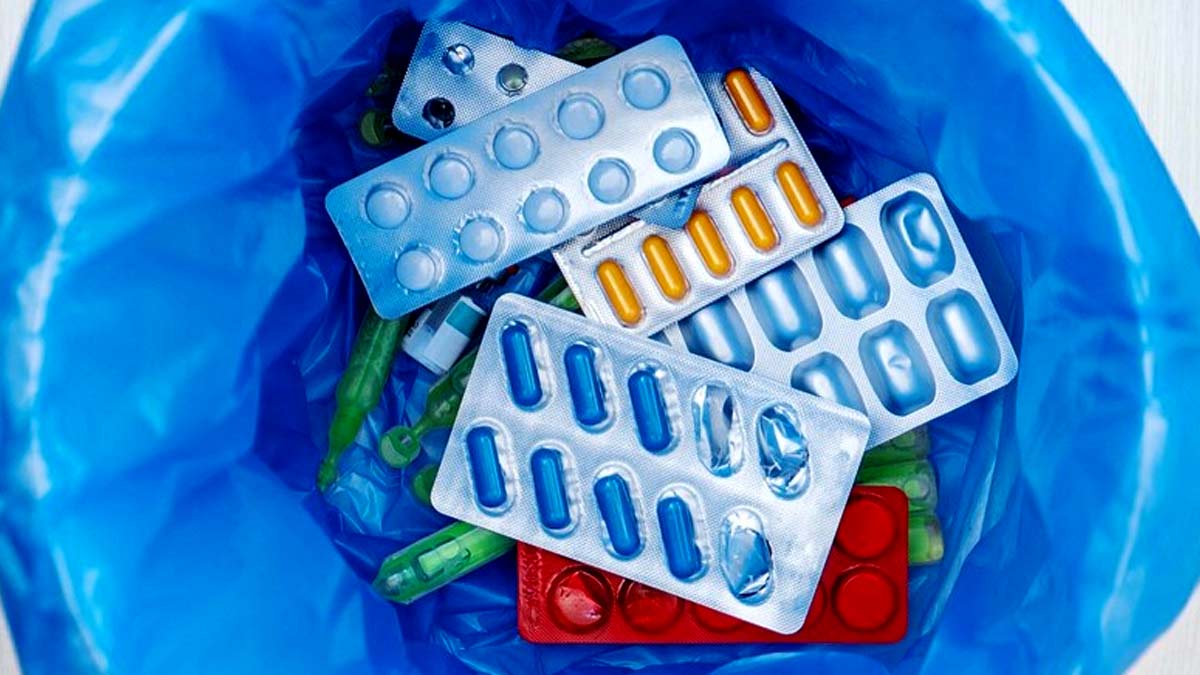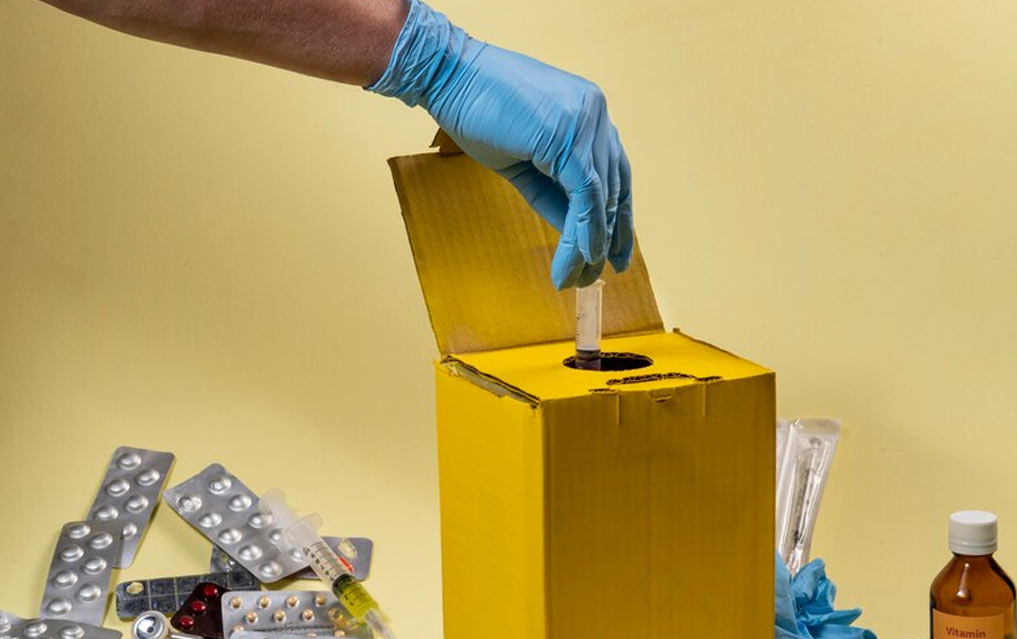
What do you do with all the unused, unwanted, and expired medicines that lie around in your medicine cabinet or drawers? When you don’t want them or do not feel like you’ll use them any more, how do you dispose of them? Do you just toss them away in the dustbin or flush them down the toilet? Have you ever stopped to think how it can affect you and your surroundings? Too many questions but not enough awareness. In an interaction with the OnlyMyHealth team, Dr Vijay Aggarwal, Director-Medical Services, Medical Services, Apollo Clinic, Bengaluru, discusses the importance of safe disposal of unwanted medicines and how to do it.
Table of Content:-
Why It’s Important To Safely Dispose Unwanted Medicines

All medicines have a positive purpose. However, if someone takes them incorrectly or accidentally, consequences can be dangerous, even fatal for some people.
Therefore, it is important to dispose of unwanted medicines safely. Disposing medicines safely prevents others from using them accidentally or intentionally. It also prevents harmful residues from getting into the environment. Look for disposal instructions on the label or information booklet, says Dr Aggarwal.
Also Read: Taking Medicines On An Empty Stomach: Physician Shares Why Doctors Recommend This
According to her, improper drug disposal practice of unused or expired medications is not only associated with environmental contamination but also risk for accidental poisoning and abuse, risk for aquatic or wildlife and antimicrobial resistance. In addition, children and pets may be especially at risk of consuming these drugs, the doctor adds.
So what are things to keep in mind when you dispose of your unwanted medicines?
Drug Take-Back Programs

The best way to dispose of your medicines is to drop off the medicine at drug take-back programs, which safely dispose of medicines by burning them up. Drug take-back programs are organised in most communities and pharmacies.
If that is not possible or if you fail to locate a drug take-back centre, then you can throw your medicines out with your household trash or flush them down the toilet, but there is a proper way to do that. Let’s understand better.
Planning To Flush Out The Unused/Expired Medicines?
Firstly, if you have the choice, do not flush medicines down the toilet or pour them down the drain. Dr Aggarwal explains, “Medicines contain chemicals that may not break down in the environment. When flushed down the toilet or sink, these residues can pollute our water resources, affect fishes and other marine life, and the residues can also end up in our drinking water.”
However, some medicines must be disposed of as soon as possible to reduce their potential harm. That’s when you can flush them to prevent someone from using them. BUT you should ONLY flush medicines when it specifically says to do so on the label.
The US Food & Drug Administration (FDA) has a list of drugs that can be flushed down the toilet. These include buprenorphine, fentanyl, Hydrocodone Hydromorphone, Oxycodone, morphine, meperidine, methadone, benzhydrocodone, and tapentadol among others.
Also Read: What Happens When You Take Expired Pills?
Other Safe Ways To Dispose Of Medicines

If you are planning to throw your medicines out with your household trash, here are a few things to keep in mind:
- Take the medicine out of its container and mix it with other unpleasant garbage such as kitty litter or used coffee grounds. Do not crush pills or capsules.
- Place the mixture into a sealable plastic bag or sealed containers that won't leak and dispose in the trash.
- Be sure to remove your Rx number and all personal information from the medicine bottle. Scratch it off or cover it with a permanent marker or duct tape.
Common mistakes people usually make when disposing of medications include:
- Not checking disposal instructions
- Sharing or giving them away
- Keeping them indefinitely, thinking they might still be effective; expired medications may be less potent or even dangerous to use
- Leaving them accessible to children and pets
- Mixing medications
- Rural people still practise keeping expired medicine in cereals to prevent them from insects.
Dr Aggarwal urges people to educate themselves about the proper disposal of expired and unused medications. According to her, this will help protect the environment, promote public health and safety, prevent drug diversion, and ensure that medications are used responsibly and effectively.
Also watch this video
How we keep this article up to date:
We work with experts and keep a close eye on the latest in health and wellness. Whenever there is a new research or helpful information, we update our articles with accurate and useful advice.
Current Version
